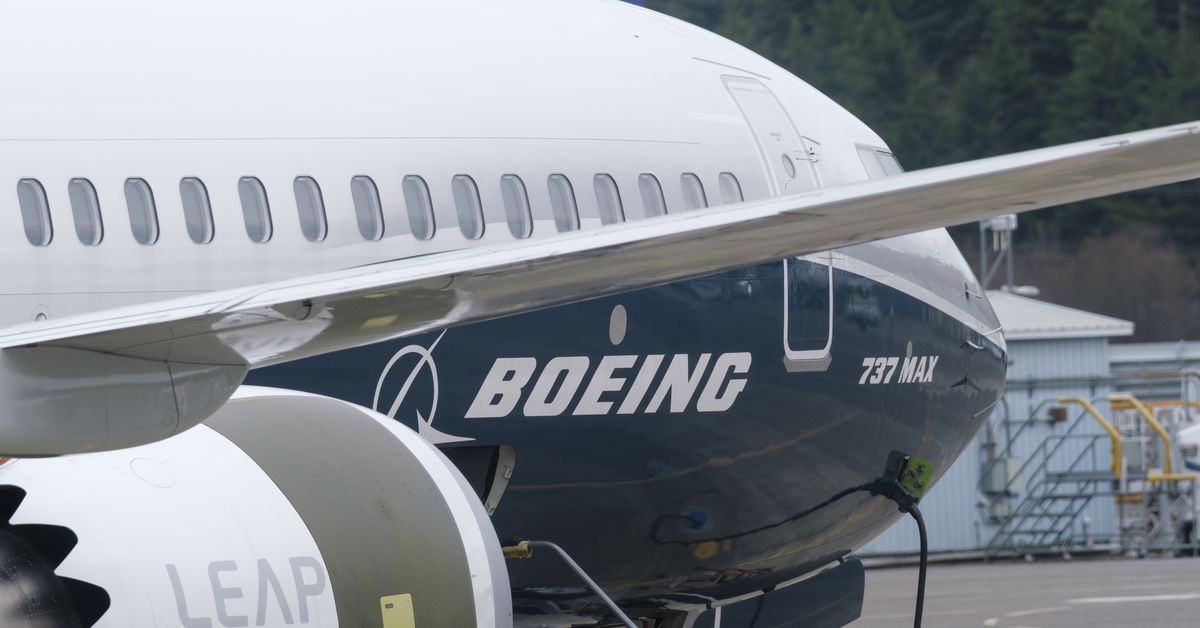
Boeing will suspend production of the 737 Max — the airplane involved in two fatal crashes that took the lives of 346 people — in January, the company announced Monday. The news was first reported by the The Wall Street Journal and CNBC.
It’s unclear how long the production halt will last, and Boeing says it doesn’t expect the halt to result in layoffs or furloughs. The company has been making about 40 aircraft per month following the 737 Max’s worldwide grounding in March, and has around 400 airplanes in storage. Boeing says it would rather “prioritize the delivery of stored aircraft and temporarily suspend production on the 737 program” in order to maintain “long-term production system and supply chain health.”
Boeing had previously said it hoped to get the 737 Max back in the air by the end of 2019, but the recertification process with the Federal Aviation Administration is ongoing. As a result, US airlines that use the 737 Max like Southwest and American have continuously delayed the reintroduction of the aircraft. Those airlines now don’t expect to use the plane again until at least March or April of next year.
The 737 Max’s two doomed flights were related to a piece of anti-stall software known as the Maneuvering Characteristics Augmentation System (MCAS), as well as production, design, and regulatory shortcuts taken by Boeing.
In a bid to better compete with a newer, more fuel-efficient plane from rival Airbus called the A320neo, Boeing decided to tweak the 737’s design instead of creating a new plane from the ground up. The result was the 737 Max — a version of the 737 that used larger, more fuel-efficient engines. These engines had to be placed farther forward than the ones on the normal 737, and as a result, the plane was more prone to pitching up and stalling in certain scenarios.
That’s where MCAS came in. Boeing developed MCAS to stop these stalls from happening by automatically pitching the nose down. But the company made fatal errors. MCAS was designed to rely on a single sensor on the outside of the plane to determine if the aircraft was headed for a stall — meaning there was no way for the system to know if that sensor was damaged. Boeing also did not tell regulators or pilots about MCAS, in a bid to keep training costs down.
As a result, the pilots of Lion Air Flight 610 and Ethiopian Airlines Flight 302 wound up fighting a piece of software that they didn’t know existed — one that was trying to stop their planes from a stall that wasn’t actually happening.
“Safely returning the 737 MAX to service is our top priority. We know that the process of approving the 737 MAX’s return to service, and of determining appropriate training requirements, must be extraordinarily thorough and robust, to ensure that our regulators, customers, and the flying public have confidence in the 737 MAX updates,” Boeing said in an unattributed statement Monday. “As we have previously said, the FAA and global regulatory authorities determine the timeline for certification and return to service. We remain fully committed to supporting this process. It is our duty to ensure that every requirement is fulfilled, and every question from our regulators answered.”
Earlier this year, Boeing announced a $100 million fund for the families and communities of victims of the two crashes. The company has also settled lawsuits with the families of the first crash, though many more have been filed. Boeing has set aside more than $5 billion to compensate 737 Max customers, though there are worries about what a production halt could do to the company’s many suppliers.
Just before Boeing confirmed the production suspension on Monday, the company’s CEO Dennis Muilenburg announced a quarterly dividend for shareholders.
https://www.theverge.com/2019/12/16/21025081/boeing-737-max-production-halt-stop-crash-faa-airplane

